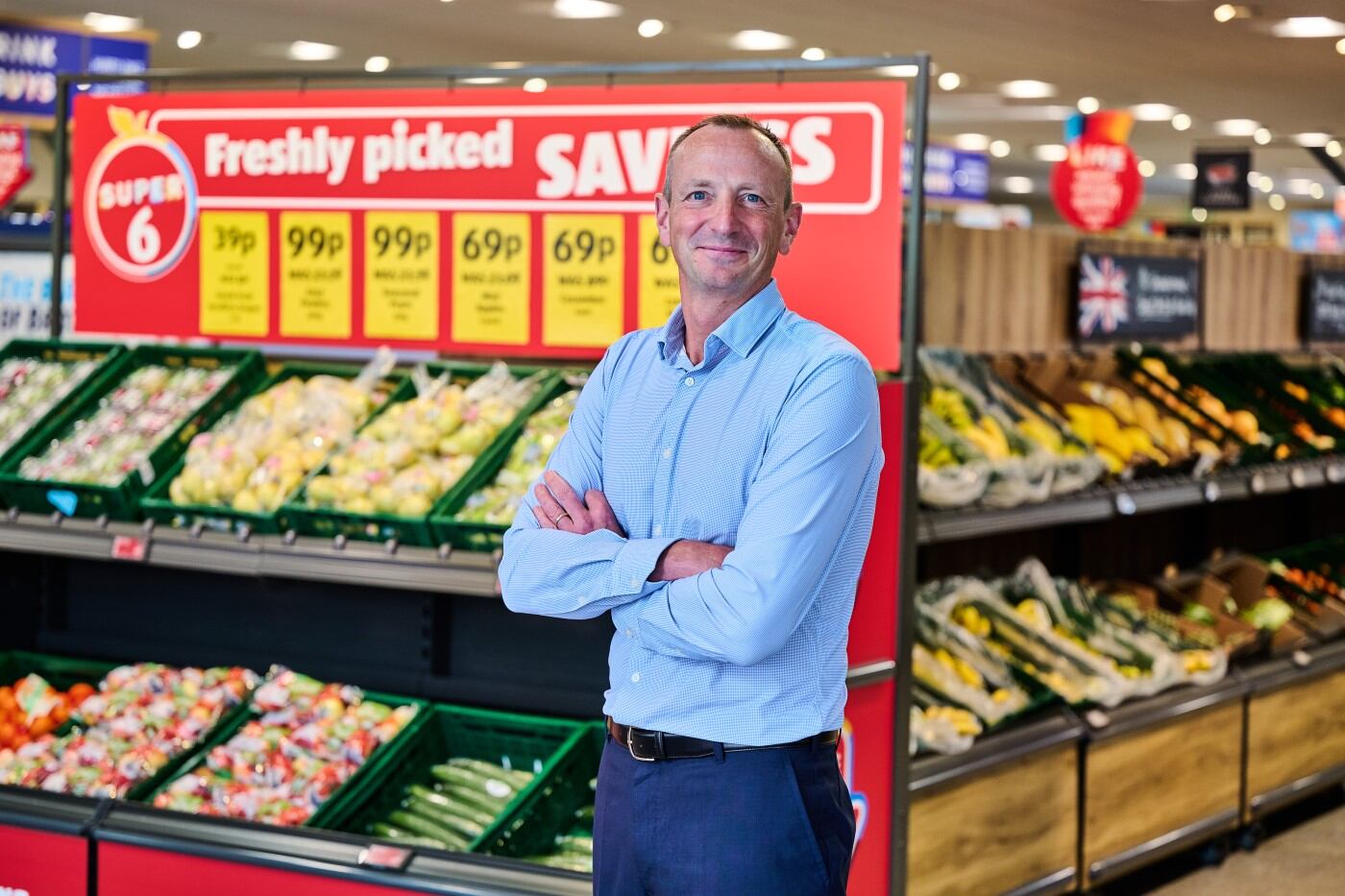UK Gross Domestic Product (GDP) growth in 2025 outperformed the Office for Budget Responsibility’s (OBR) March forecast. However, the OBR has revised down its forecast for underlying medium-term productivity growth.
The decline in productivity growth has been largely driven by under-investment, compounded by a series of economic shocks including recent trade disruption, the impact of Russia’s invasion on Ukraine on energy prices, the COVID-19 pandemic, and Brexit.
The OBR revised productivity forecast brings it in line with the Bank of England’s predictions.
Here, we summarise changes and bring you key F&B industry reaction…
Business rate changes
Among the raft of taxes, the Government will be rolling out higher business rates for high value properties which will see supermarkets brought into the regime.
The high-street will benefit from ‘permanently’ lower business rates for retail, hospitality and leisure, which will be funded by higher rates for the most expensive properties, such as warehouses used by large online retailers.
Alison Conley, head of retail at MHA, elaborates: “This is part of the broader effort to rebalance business rates across the economy but is likely to lead to higher prices for shoppers and potentially make some stores unprofitable and at risk of closure.
“This multi-million-pound tax hit will also be exacerbated by a further increase in the national minimum wage. Earlier increases in the national minimum wage and the increase in employer national insurance contributions have already had a significant impact on retailers of all sizes and this could be the final straw for some.”
Alcohol duty increase
The Chancellor’s speech did not mention alcohol duty, but we can expect it to increase in line with inflation.
The Scotch Whisky Association (SWA) says this decision will put “additional pressure on a sector suffering job losses, stalled investment and business closures”.
Commenting in response to the RPI inflation increase to alcohol duty, Mark Kent, chief executive of the SWA said: “The Scotch Whisky industry is disappointed that the domestic tax burden has once again increased in the Autumn Budget, putting huge additional pressure on a sector suffering job losses, stalled investment and business closures.
“Put simply, the government cannot expect the Scotch Whisky sector to just keep delivering growth, both at home and on the world stage, if the conditions which support growth are not nurtured.
“The previous 3.65% increase to spirits duty has reduced spirits revenue by 7% - a loss to the Treasury of £150m. Hiking duty today, for the third time in two years, not only limits our sector’s ability to contribute to much needed economic growth and productivity, but will once again fail to deliver for the public purse and needlessly cost jobs.
“Increasing global and domestic pressures led our industry to ask for duty in our home market to remain unchanged. Not a tax cut, not a handout, simply breathing room for a critical Scottish industry. Government has chosen to ignore those warnings, to the detriment of distillers, of bars and restaurants, our farmers and suppliers, and ultimately of growth.”
Salary sacrifice
From April 2029, the amount that is exempt from National Insurance contributions (NICs) will be capped at £2,000 a year for employee contributions made via salary sacrifice.
Karen Betts, chief executive for the FDF said: “Food and drink manufacturing employs half a million people in communities across the UK and, as responsible employers, we want to ensure our colleagues are rewarded properly. However, we’re concerned that the changes to salary sacrifice for pension contributions will discourage people from adequately saving for their retirement, creating further costs for the State down the line.”
Fuel duty rises and electric vehicle tax
The Budget also includes an increase in fuel duty, set to take effect from September 2026.
RAC head of policy Simon Williams said: “Drivers will be relieved the Chancellor has decided to keep the 5p duty cut in place for now as it saves them more than £3 a tank. But this relief will be very short-lived given the staggered increase from next September.”
Logistics UK acting chief executive Kevin Green added: “Instead of nurturing the green shoots of economic recovery, the government risks stamping them out. The increase in fuel duty announced in the Budget will mean hundreds of millions in increased taxes for logistics businesses, much of which will be passed onto households and businesses, as well as hitting motorists directly – fuelling inflation across the economy.
“It is a short-sighted decision that fails to appreciate logistics’ role in the economy - logistics costs are embedded in all products from food and medicines to construction materials and consumer goods: increasing logistics taxes mean increased costs for everyone.
“Logistics businesses already pay around £5.5 billion a year in fuel duty - increasing the tax burden on our industry shows a disregard for a sector that generates £170 billion for the UK economy, employs over 8% of the nation’s workforce and is key to the government’s growth agenda. We urge the Chancellor to reconsider this decision at the earliest possible opportunity, or risk an inflationary impact right across the economy in the spring.”
Paul Holland, managing director for UK/ANZ Fleet at Corpay, including UK brand, Allstar, added: “The Autumn Budget has landed and it is every bit as tough as expected. Higher taxes, reduced growth forecasts and a new mileage tax for electric vehicles all point in the same direction. Costs are rising again and the businesses keeping the country moving are being asked to absorb even more pressure.
“Nothing announced today makes life easier for fleets or small businesses. Fuel duty relief is still absent, with only a five-month freeze before staged increases begin from 2026. Incentives for cleaner alternatives such as HVO are missing. Support to help small firms electrify is nowhere to be seen. Instead, the Government has confirmed a new EV mileage tax from 2028, charging 3 pence per mile for battery electric vehicles and 1.5 pence per mile for plug in hybrids. This is completely the wrong move at the wrong moment. If you increase the cost of running an EV, people will simply delay switching.”
Packaging updates
The Budget has also seen some updates for packaging.
“While plastics packaging tax is going up in line with inflation from April next year, no further rises have been announced and, all things considered, that is good news for food businesses,” said Rod Addy, director general for the Provision Trade Federation (PTF).
“The fact that the government has also committed to legislating for mass balance in calculating packaging tax may also lead to manufacturers paying less in tax than they may otherwise have done, which is also a relief. They have had to face the introduction of separate Extended Producer Responsibility charges for packaging disposal as well as National Insurance and Minimum and Living Wage increases, plus continued import and export costs associated with Brexit.”
Betts added: “It’s good news the government has committed to legislating for mass balance accounting in this Finance Bill. This means that companies using mechanically or chemically recycled plastic will no longer have to pay as much in the plastic packaging tax.”
“It’s also welcome that government will formally consult on the future of the costly, volatile and outdated Packaging Waste Recovery Notes (PRNs) system, and on ensuring councils run efficient, cost-controlled recycling services. To drive real change and value, it’s good to see government again acknowledging the key role of producers in leading the EPR scheme, through a Producer Responsibility Organisation.”
Minimum wage rates to rise
We will also see increases in National Minimum Wage rates. The minimum wage rate for all workers aged 21 and over will rise by 4.1% to £12.71. For 18-20-year-olds, it will rise to £10.85, and for 16-17-year-olds it will rise to £8.
Rupert Ashby, CEO of the British Frozen Food Federation, offered his response: “Our latest membership research makes the scale of that fragility clear. A third of frozen food businesses have already reduced their workforce in response to the increases in National Insurance and the National Minimum Wage over the past year, with reductions ranging from modest adjustments to one business that has cut its workforce by almost half and closed four sites.
“Nearly half are now reducing staff organically by maintaining a recruitment freeze, while others are seeking to manage costs by accelerating automation plans and reassessing capital investment. Members also tell us they are suspending planned projects, placing tighter conditions on suppliers and considering extended payment cycles simply to absorb the pressures they already face.
“Against this backdrop, today’s announcement offers little sense of relief or encouragement.
“The announcement of funding to make training for apprentices under 25 free for small and medium-sized businesses is to be welcomed. However, the overall increases in minimum wages, especially for teenagers, could create unintended difficulties for young people looking for their first job.
“Equalising wages between younger and more experienced workers makes it harder for businesses to justify employing a very young person. Employers who are already under strain may opt for a candidate with more experience if both come at similar cost, risking reducing opportunities for young people at precisely the moment they need them most. This will inevitably hit the hospitality industry and food industry harder than some, as they rely on seasonal labour for food harvest, production and events.
“The frozen food sector is resilient, innovative and central to the UK’s food security, but it cannot continue to shoulder rising costs without consequences. Today’s budget offered a chance to give businesses renewed confidence to invest, grow and create jobs. Instead, many of our members will see it as more pressure layered on top of those they are still managing from last year.”
Free apprenticeships for under 25 for SMEs
Reeves has also confirmed free apprenticeships for those aged under 25 for SMEs, alongside £820 million for the government’s new “youth guarantee” – a move to get young people into paid work.
“Today I am announcing funding for training for under 25 apprenticeships completely free for small and medium-sized enterprises,” she said.
Ann Watson, CEO of Enginuity said that whilst the Chancellor’s recommitment to strengthening the skills sector today is welcome, with the new funding set to “unlock valuable opportunities for young people”, it is critical SMEs shape the policy “to ensure it works for everyone”.
EMI changes
We also saw the eligibility cap lifted on the Enterprise Management Incentive (EMI) scheme. This government-backed initiative allows SMEs to offer share options for employees.
The employee limit has now doubled from 250 to 500 employees, the overall value of EMI options that can be granted to employees has also rise from £3 million to £6 million. The gross assets test has also increased from £30 million to £120 million, and the maximum holding period for EMI options has increased from 10 to 15 years – this can apply to existing EMI options.
Louise Jenkins, managing director at Alvarez & Marsal Tax commented: “The reforms to EMI plans are a welcome strengthening of what is already regarded as the Rolls Royce of employee share option scheme in the market. Government expects around 1,800 additional companies to adopt EMI over the next five years, with roughly 70,000 employees set to benefit. The latest available data, for the 2023–24 tax year, shows an average grant value of around £12,340 per employee.”
Soft Drinks Levy
As revealed yesterday on Food Manufacture, the sugar tax will see some big changes, including a lower threshold and the inclusion of some dairy and plant-based alternatives, such as pre-packaged sugary milkshakes.
Sam Sharp, partner at Browne Jacobson said: “Extending the levy to milk-based drinks and milk substitutes from 2028 is the biggest story for F&D manufacturers. Milkshakes, flavoured milk, and dairy-free alternatives are now in scope, that’s a reformulation scramble across the beverage sector affecting major brands and café chains.
“The ‘latte loophole’ – open cup beverages, such as lattes bought in coffee shops – remain unaffected, creating a regulatory divide that could distort competition between pre-packaged and made-to-order drinks. This change is one our team predicted and we’re advising businesses to be live to product compliance, labelling, and renegotiating supply chain contracts.”
Addy said the extension of the Soft Drinks Industry Levy to milk-based drinks is unwelcome, but expected.
He continued: “PTF members continue to work hard to enable dairy products to contribute to a healthy, balanced diet and we support the need to reduce added sugars in products to combat obesity and dental caries.
“We are relieved that the government chose to listen to our arguments and lessen the impact on industry by opting for a reduced lactose allowance of 4.5g per 100ml rather than 4g in products, which will not count towards sugar content for the purpose of drinks tax. Lactose is a naturally-occurring milk ingredient and levels have been calculated based on average amounts in semi-skimmed milk.”
‘Manufacturers unlikely to feel optimistic’
Commenting on the Budget’s impact on manufacturing, Julie Palmer, partner at Begbies Traynor, said: “There can be no hiding from the fact that UK manufacturing taken a battering recently, with uncertainty in the lead up to this Budget worsened by soaring energy costs, materials inflation and shortages, supply chain challenges and the ripple effect of the JLR cyber attack. Further tax rises, minimum wage increases and no sign of direct support for the sector is not going to be making manufacturing leaders feel particularly optimistic.
“Whilst we have seen SME manufacturing and engineering firms entering distress, we have also witnessed larger firms hoovering them up to take on board their significant talent, ideas, assets and order books. Manufacturing is a resilient sector and a crucial driver of UK growth so businesses who seek advice early on to develop long term strategies for recovery and growth can often ride the wave.
“While businesses navigate the challenging economy, the industry and government need to look at the long-term strategy of energy costs beyond its fuel duty freeze, controlling material cost inflation, encouraging young skilled workers into engineering whether through apprenticeship or graduation and supporting the supply chain with trading so UK manufacturing can be a leading force in global trade.”
Missed opportunities
Watson added: “This Budget was a missed opportunity to tackle fully the increasing cost base facing SMEs. Further consecutive rises to the minimum wage and lack of fundamental skills reform will continue to stifle growth in the Government’s key growth sectors, impacting SMEs greatly, and limiting the success of the Industrial Strategy.
“According to Enginuity’s latest SME Snapshot survey, high employment costs are now the largest factor driving inflationary pressures and undermining the UK’s labour market. For SMEs, the backbone of UK manufacturing, these costs have become unsustainable, and more needs to be done to tackle them.”
Betts said that whilst the FDF recognises the Chancellor had difficult decisions to make given the challenging fiscal situation, the trade body would have liked to see more in this Budget on growth.
“Investment in productivity and growth in our sector is the best medium-term protection against the UK’s persistently high rates of food inflation, and it preserves jobs and boosts skills. While it’s positive to see the government engaging on inflation, there’s much more government and industry can do together now to address this,” she said.
“This includes ensuring the UK’s largest manufacturing sector receives an adequate share of government R&D funding, maintaining stable regulation, and not overlooking food and drink in support for energy intensive industries. Where regulation needs to change, government must ensure meaningful consultation with business – as there was on the Soft Drinks Industry Levy, but which we need to see on the Nutrient Profile Model too. The right engagement between our industry and government will create the conditions for sustained growth, investment, and productivity gains.”





